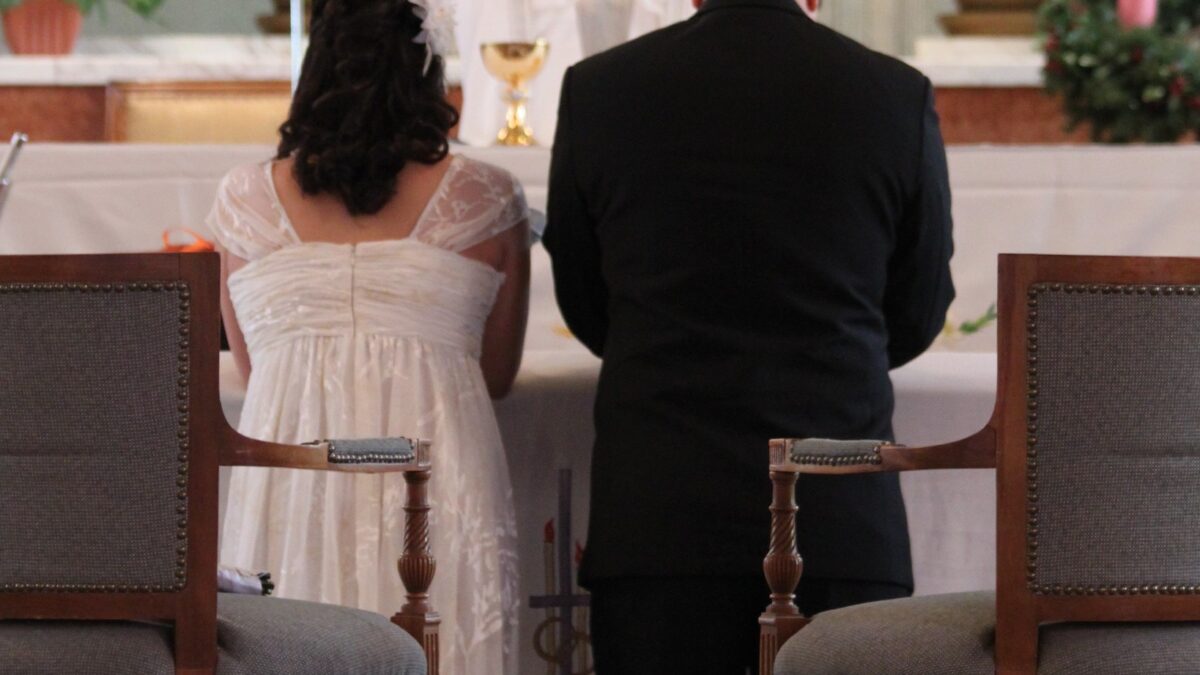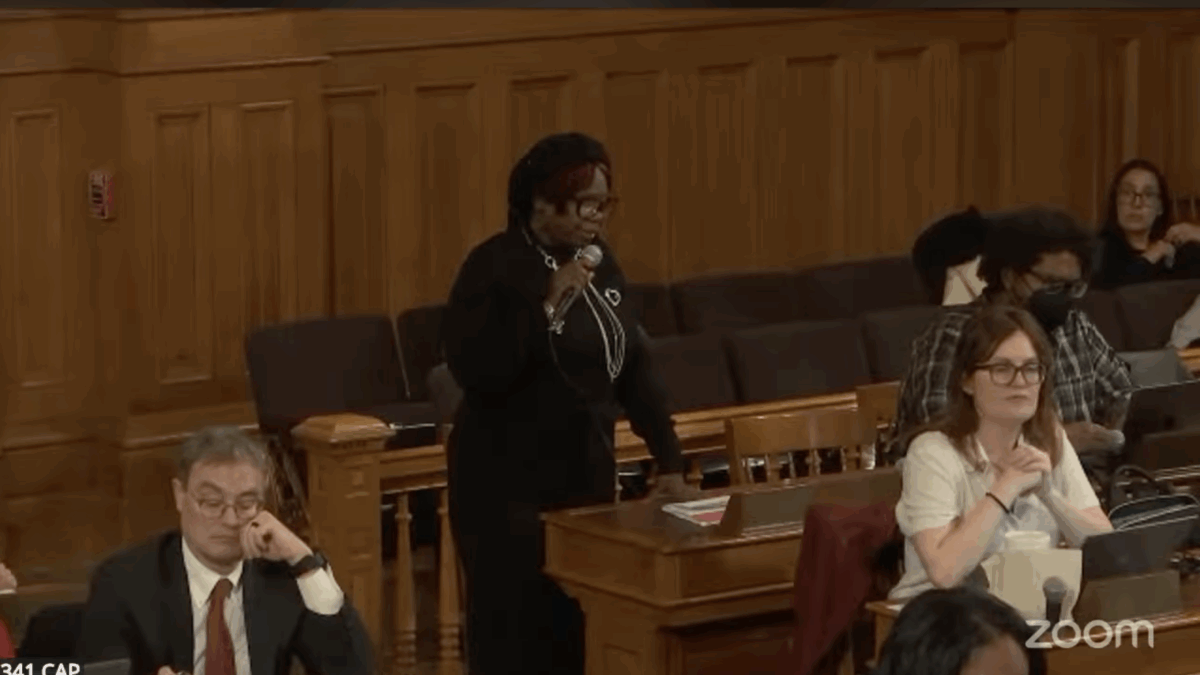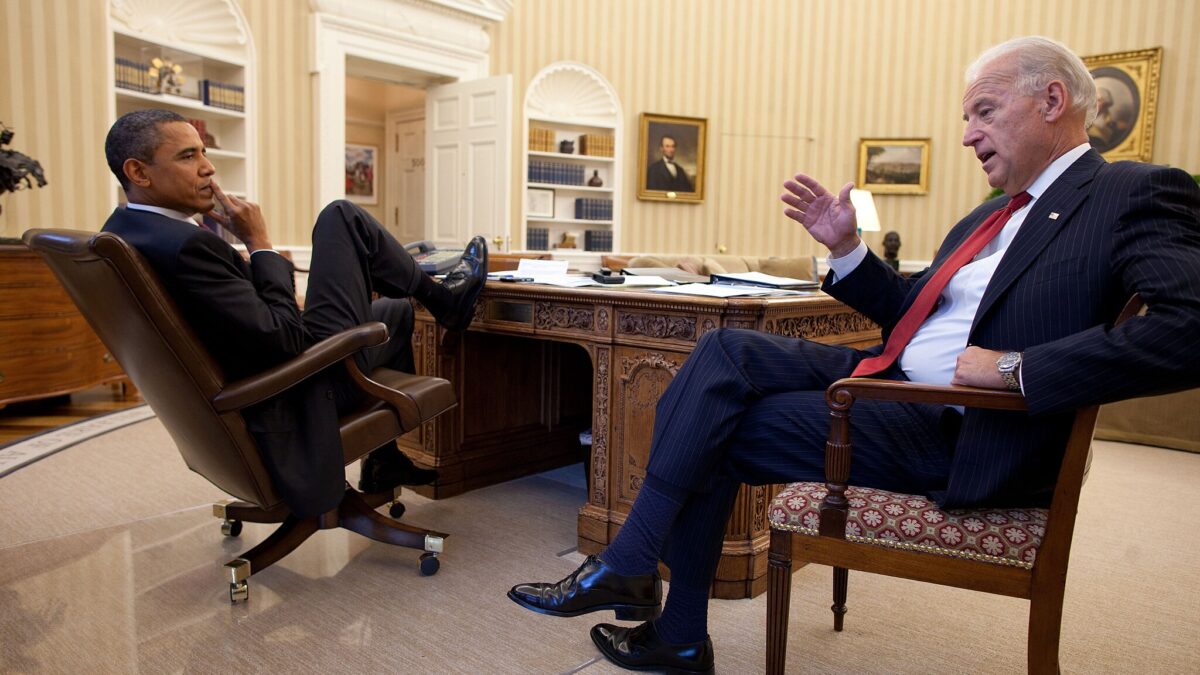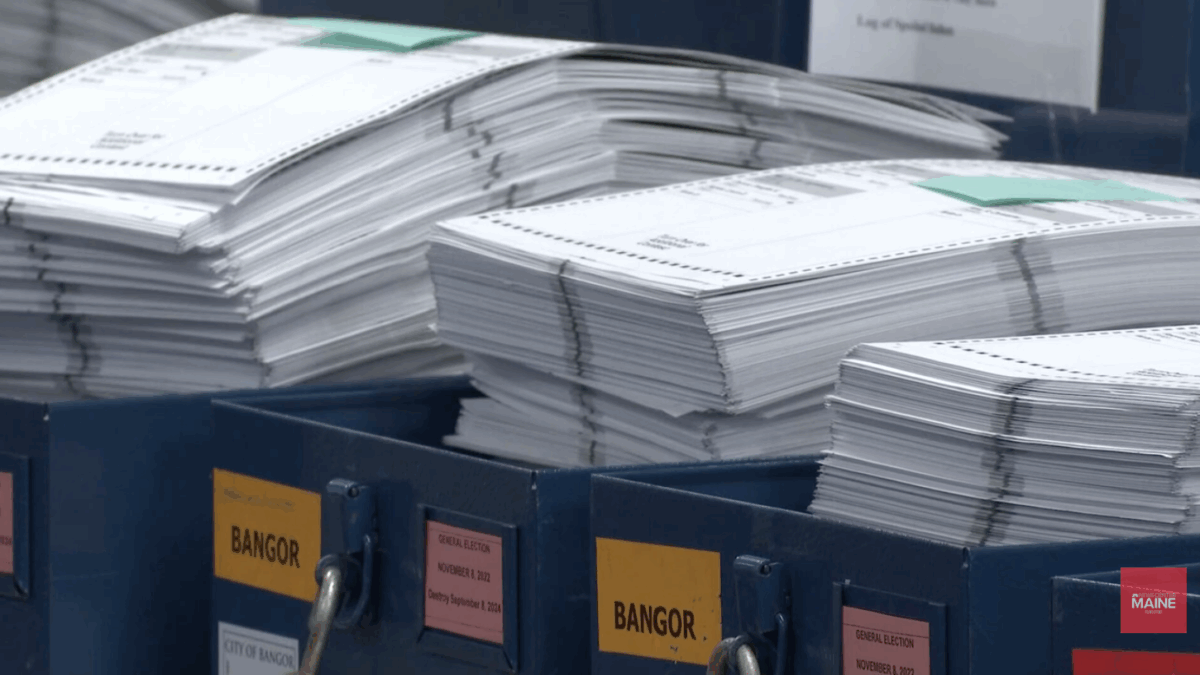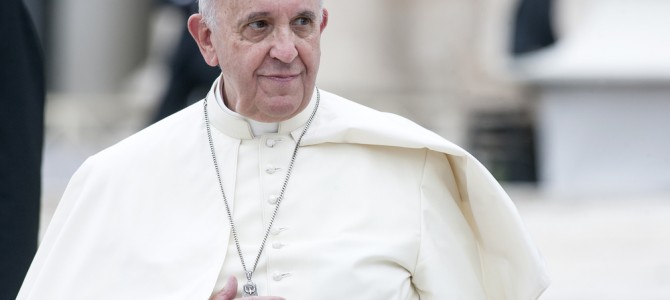
Many Catholics appear to be in a quandary as they grapple with how to respond, or not respond, to Pope Francis’ leftist statements on capitalism, free speech, and wealth redistribution, as well as his upcoming encyclical on climate change. Add to that his recent comment on the moral responsibility of Catholics not to breed like rabbits, which has many in the church scratching their heads.
Some (both Catholics and non-Catholics) have spoken out against the pope’s liberal statements, passionately standing up for liberty and defending conservative principles of free speech and free markets. In “Don’t Pick Political Fights With Pope Francis,” Rachel Lu has called such dissenters troubled, bitter, even disobedient. Her argument in favor of either silence or a more “tempered” response (as she defines it) to the pope’s remarkably liberal positions is that dissent among American conservatives against Rome will fracture the GOP and give liberals the upper hand as they cheer on the warring factions.
While it is certainly true that division weakens a party, its cause must be examined, not by chastising people who are speaking out in good conscience, but with reasoned consideration about the actual nature of the conflict. What is the source of the discord, and how can it be reconciled? Lu puts the blame for the breach at the feet of dissenters who oppose Francis’s liberal views. She accuses them of insulting the pope and acting out of misunderstanding. She doesn’t seem to allow for the possibility that their motivations are much more positive, that they’re passionate about freedom and concerned about the rise of an increasingly powerful centralized government in our own country. Instead, she assumes they must just have a problem with the pope and Catholicism in general. She then takes the next step of allowing the Left to passively dictate how conservatives handle such unseemly dissension in its ranks—a step that gives the Left too much credit and power.
Pope Francis Critics Square Off on Substance, Not Personality
Lu couldn’t be more wrong. I’ve been criticizing this pope since the week he was elected (here and here), and it’s never been because I hate Catholics or because I’m “mad” at anyone. It’s not because I want to trash the pope or cause conflict. It’s because I care about freedom, and the social-justice schemes and leftist ideology of this pope are wrong and immoral, not because the pope is immoral, but because these ideologies rob people of freedom and of the opportunity to rise out of poverty. It is the duty and right of lovers of liberty—Catholic or not—to oppose any world leader who speaks out in the public square for destructive policies and who has a powerful influence on American voters—and it’s irrelevant what the Left thinks.
In putting the blame for the conflict on dissenters of Rome, Lu is acting much in the same way as liberals who shut down conservatives in the debate over President Obama’s policies. They accuse conservatives of hating him for personal reasons, instead of taking seriously the substance of their criticisms. Those of us who disagree with the president and think his views reflect a socialist ideology do not oppose him because we hate him or because we are trashing an African-American leader. We disagree on principle, and we speak out because we value liberty. The accusation that we oppose Obama because we don’t like him or because we’re racists is pure rubbish. Those who make that accusation do so because they are intellectually bankrupt and have no defense for his ideology. They value the man more than liberty, and they will go to any length—even turning on their fellow citizens and mischaracterizing them—to maintain his authority.
The same goes for Francis. When people like Lu call dissenters “troubled” Catholic baiters who just hate the pope, they are using a liberal tactic to shut down debate because they don’t want to deal with the facts. At the heart of the matter, they don’t want to be put into a position where they have to make a choice between loyalty to right principles (to the truth) and loyalty to their beloved leader (a fallible human being). Instead of doing the uncomfortable thing and taking a stand for right principles—which will put them in opposition to the pope—they attack the critics, those who are speaking out in defense of liberty and against the views of the pope that lead, not to the elevation of humanity across the globe, but to its debasement.
Catholic Intellectuals Have Previously Felt Free to Criticize Popes
Catholic intellectuals have not always responded to controversial papal pronouncements this way. In August 1967, William F. Buckley Jr. spoke out publicly against Pope Paul VI regarding his encyclical on “the development of peoples.” (You can find his writings on this in the book “Athwart History: Half a Century of Polemics, Animadversions, and Illuminations”). Buckley’s criticism might come as a shock to some who think Catholics should be more tempered or even remain silent in their public opposition to Pope Francis’ leftist views. Buckley, however, did not remain silent, and some, no doubt—if his words were published today—would find his language unacceptable and offensive.
“Pope Paul VI has released an unfortunate encyclical (Popularum Progressio),” Buckley wrote, “particularly unfortunate because its naiveté in economic and other secular matters drowns out passages of eloquence which, had they gone unencumbered by confused and confusing ideological detritus, might have served to remind the responsible community of the inspiring ardor of the pope’s passion for human reconciliation and the exercise of charity on a universal scale.”
Those words could have been published about Francis today. And strong words, indeed. “Ideological detritus” (debris) is pretty searing language, yet that’s what Buckley wrote. But was he “trashing the pope,” or was he taking a stand for right principles? Did his criticism lead to disunity among conservatives, or did his unwavering convictions usher in a conservative ascendency?
In criticizing the pope’s advocacy of wealth redistribution through foreign aid, Buckley wished the pope had steered clear of secular issues and merely exhorted people to care for the poor as Jesus commanded the church to do. But Paul VI didn’t, and because he didn’t, his criticism of capitalism became fodder for the media. This bothered Buckley, and he felt compelled to criticize the pope’s position because of its public and political impact. Buckley said that the call for the “rich to stretch their necks out over the guillotine without exhortation to the politicians to maintain order and stability…is advice in the name of charity and good conscience which, if followed, would add to, not subtract from, the sum total of human misery.” Buckley recognized biblical injunctions to urge the rich to share with the poor, but “it is another thing to urge that this process be executed primarily through the taxing or expropriating power of the state.”
Outside Doctrine, the Church ‘Is Quite Capable of Erring’
That the pope didn’t seem to grasp this came across as a serious deficit, in Buckley’s opinion. “Indeed, the pope sometimes reads like a simplistic Barbara Ward, than whom there are few writers more simplistic. He enjoins upon ‘government officials’ ‘above all’—would you believe it?—‘to make [your peoples] accept the necessary taxes on their luxuries and their wasteful expenditure in order to bring about development and to save the peace.’ The terrible congestion of misinformation in that sentence! Tax all the luxuries of the rich and you still wouldn’t have enough money to buy all the Vatican treasures—it is the middle class and the lower middle class who are shouldering the great economic load today, for the simple reason that the rich, if you took away everything they had, could not relieve the world’s poor for a single week.”
Recognizing that the pope was in serious error on this point and having harshly criticized his views while still maintaining that the pope had the best intentions, Buckley writes, “It all reminds one of St. Thomas Aquinas’s warning that outside the field of morals and doctrine, the Church is quite capable of erring, ‘propter falsos testes’—on account of bad information. Those who have worked hardest and most productively for the diminution of human misery and know that the preconditions are (1) political stability and (2) economic freedom will be disappointed by the goals, exquisitely described by the pope, but the suggested means, illusory and self-defeating, which if followed would have the contrary effect to that desired by this intense and holy man.”
Buckley’s criticism of Pope Paul VI isn’t that much different—in fact, somewhat more scathing—than criticism leveled against Pope Francis by dissenters today. Buckley recognized his right to dissent, though he did it without disrespecting his church’s religious authority. He was harsh when he came to the pope’s erroneous and dangerous secular views, but he honored the man and assumed the best about his motivations.
Liberty Is Worth Fighting Over
Like Buckley, conservatives today are fighting to save our nation from the grips of tyranny. Their great battle is against ideologies that promote totalitarianism in any form. Those who criticize Francis when he makes political pronouncements that challenge that fight for liberty do so on principle, not because they want to insult the faith of American Catholics. American Catholics, therefore, should stand united with their fellow conservatives in criticizing any influential leader who seeks to undermine political liberty. When they don’t, when they make excuses for Francis or attack his critics, they are the ones fracturing unity, not the other way around.
Thankfully, not all Catholics cower in the face of papal statements that promote destructive ideologies. Steve Moore at Forbes has recently written that “Pope Francis is a complete disaster when it comes his public policy pronouncements.” Why? Because, “On the economy, and even more so on the environment, the Pope has allied himself with the far left and has embraced an ideology that would make people poorer and less free.”
In promoting climate change, Francis is using the language of “the radical green movement that is at its core anti-Christian, anti-people, and anti-progress. He has aligned himself with a secular movement that is antithetical to the fundamental theological underpinning of Catholicism — the sanctity of human life and the value of all souls.”
Some of the great atrocities of the past half century have been borne of this belief that the world is overpopulated. Has the Vatican forgotten the detestable and immoral population control policies including, eugenics, tens of millions of forced abortions and forced sterilizations, and one child policies – all in the name of greens trying to save the planet? It was Pope John Paul II who heroically denounced this theology and reminded Catholics and all Christians that human beings are resource creators, not resource destroyers.
This is why the Pope’s missives on capitalism and income inequality are so misguided as well. Catholics, of course, have a moral responsibility to care for the poor and disadvantaged. But the greatest vehicle for alleviating poverty and deprivation is the very institution of free market capitalism that he now denounces.
Francis wants to put more power in the hands of statist oppressors when what he should be doing is being a “saver of souls,” Moore concludes.
Lu would say that Moore is just giving the Left more ammunition to use against the Right. But should conservatives ever back down from their principles because they’re afraid of how the Left will twist it? If that were the case, conservatives should all be silent because the media manipulates everything they to benefit the Left.
Pope Francis Unchecked Will Damage Republican Gains among Catholics
Lu argues that opposing the pope will somehow cause Mass-going Catholics who have begun to vote Republican to suddenly turn tail and start voting Democrat. Why? Because conservatives are challenging their pope? More likely, what will happen is that if Francis continues his merry way in promoting liberal ideology in highly authoritative encyclicals, those Mass-going Catholics who had at one time thought it better to vote Republican will hear from their church that what Republicans stand for is wrong. They are “good Catholics” after all and will want to be in line with their pontiff. They will continue to hear the message of social justice (which the pope seems to promote just as much, if not more so, than the Gospel, at least on the international stage) and conclude that it is the Democrat Party that most represents their beliefs. The numbers will grow among the Democratic ranks because Catholic and non-Catholic conservatives didn’t want to appear to be “mad” at Francis.
Instead of speaking out against Francis and his liberal views, Lu calls for solidarity of conservatives, but it is a solidarity of silence and fear. Conservative solidarity is not based on loyalty to a man, an institution, or even a party. Conservative solidarity is fearless, and it’s founded on principles of liberty that value the individual and free will. If you are for those principles, then you stand with conservatives. If you don’t—if your loyalty lies elsewhere—then you are the one wrecking the cohesion of the party. Is it dissenters who have threatened the unity of the conservative movement, or is Francis himself—and those who support him—causing division?
Lu tells conservatives not to pick a fight with Francis, but how about telling the Roman pontiff not to pick political fights (even unintentionally) with conservatives? How about challenging him to get his scientific facts right, to express himself clearly, and to break free of his Argentinean ideology and discover the power of capitalism in freeing people from poverty? Even better, how about exhorting him, as Moore does, to be a saver of souls, not an equalizer of the masses. The mission of the church is kerygmatic, not political or economic. The pope would do well to remember that.
Dissent Embodies Liberty and a Commitment to Truth
Buckley, a faithful Catholic and a staunch conservative, did not think he had to make a choice between party and religion, between the GOP and the pope. He knew that wasn’t the choice. The choice, for him, was between truth and falsehood. He stood on the side of truth, conscience clear.
Lu admits that Francis, an Argentinean, hasn’t “seized the opportunity to clearly and unambiguously support first-amendment-type political freedoms such as we have in America.” Not only has he not clearly supported our political freedoms, he has spoken out against them. But Lu doesn’t think that matters. In fact, she thinks his political view on climate change is a “yawner.” The thing is, most conservatives value those “first-amendment-type political freedoms.” It’s troubling that Lu advocates silencing those who want to speak out against a leader who doesn’t support our political liberties. The argument that dissent emboldens our enemies doesn’t wash. Dissent in the face of tyrannical ideology is the essence of liberty. It’s what our nation was founded on, and it’s what will save it.
Like many have said, the political pronouncements by the pope are not infallible, but they do hold authority and influence. Given that those pronouncements undermine the very principles American conservatives and Christians are fighting for every day, shouldn’t Catholic conservatives follow Buckley’s lead and speak truth to power, even if that power resides in Rome?


